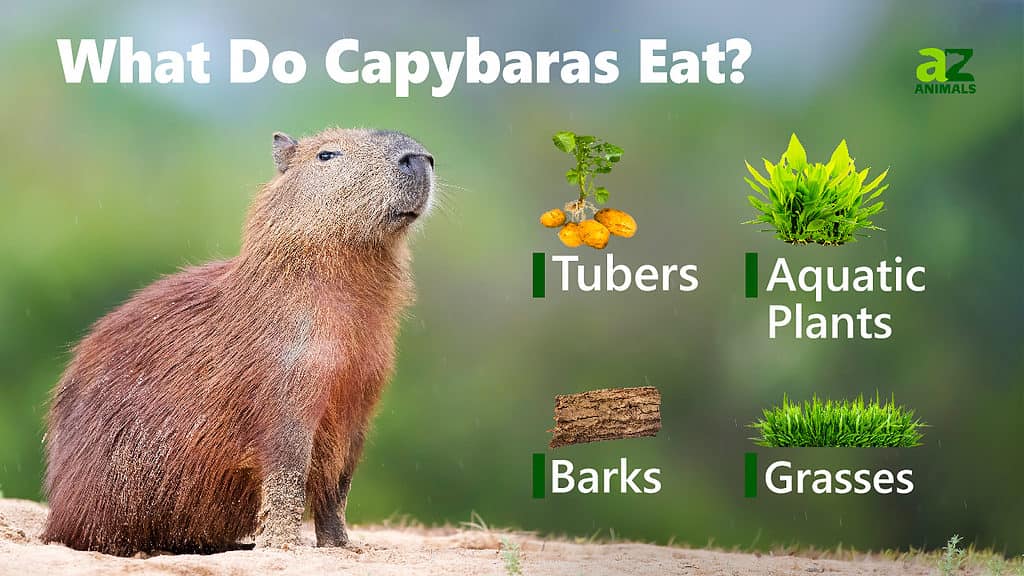
Discovering the Vegetarian Mediterranean Diet
The vegetarian Mediterranean diet is more than just a way of eating; it embodies a healthy lifestyle inspired by the culinary traditions of countries bordering the Mediterranean Sea. Emphasizing fresh, seasonal vegetables, whole grains, legumes, and healthy fats, this diet is celebrated for its long-term health benefits, including improved heart health, weight management, and enhanced overall wellbeing. In 2025, adopting this diet not only supports personal health but also promotes sustainability and ethical eating practices.
This article will delve into seven effective strategies for incorporating a vegetarian Mediterranean diet into your daily routine. We’ll explore the core food groups, benefits, and delicious recipes that highlight the richness of this diet. Whether you’re a long-time vegetarian or just looking to incorporate more plant-based meals, these tips will help you flourish on your Mediterranean dietary journey.
Key takeaways will include understanding the Mediterranean food pyramid, exploring the benefits of olive oil, and discovering practical meal planning tips that align with seasonal produce. Let’s embark on this journey to transform our meals and embrace a healthier lifestyle with the flavors of the Mediterranean!
1. Understanding the Mediterranean Food Pyramid
Building a vegetarian Mediterranean diet starts with understanding the foundational elements of the Mediterranean food pyramid. This visual guide helps individuals prioritize their food choices, starting from a base of whole grains and seasonal vegetables.
Key Components of the Mediterranean Diet
The Mediterranean food pyramid emphasizes whole grains, fruits, vegetables, legumes, nuts, and healthy fats such as olive oil. Dairy, especially cheese and yogurt, is included in moderation. Animal products are used sparingly, making it easy to adapt for vegetarians who wish to focus on plant-based foods.
Balancing Food Groups
A balanced meal plan should include various food groups. Incorporate whole grains like farro or quinoa, a colorful array of vegetables, and protein-rich legumes like chickpeas and lentils. This not only maintains nutritional balance but also adds variety and flavor to meals.
Visualizing Your Plate
When planning your meals, visualize the Mediterranean plate: half filled with vegetables, one-quarter with whole grains, and the other quarter with protein sources like beans or lentils. Adding healthy fats, such as a drizzle of olive oil or a handful of nuts, enhances flavors while providing health benefits.
2. Exploring the Health Benefits of Olive Oil
Olive oil is a staple in Mediterranean diets and a key aspect of its health benefits. Consuming olive oil regularly is linked to lower risks of heart disease and enhanced longevity.
Heart Health and Mediterranean Cuisine
Studies have shown that the monounsaturated fats in olive oil help reduce inflammation and support heart health. Replacing saturated fats, like butter, with olive oil can positively impact cholesterol levels and overall cardiovascular health.
Rich in Antioxidants
Olive oil is also rich in antioxidants, which play a crucial role in preventing chronic diseases. When choosing olive oil, look for extra virgin varieties that retain these beneficial compounds, enhancing both health and culinary qualities.
Using Olive Oil in Cooking
Incorporate olive oil into your daily cooking by using it in salad dressings, sautéing vegetables, or drizzling over dishes as a finishing touch. This simple change can elevate your meals while providing essential nutrients.
3. Integrating Whole Grains and Legumes
Whole grains and legumes form the backbone of the vegetarian Mediterranean diet. They provide essential nutrients, fiber, and protein, promoting satiety and health.
Choosing the Right Grains
Opt for whole grains such as brown rice, whole grain bread, or whole grain pasta. These options are more nutrient-dense than refined grains and offer higher fiber content, supporting digestive health.
Incorporating Legumes
Legumes, such as lentils, beans, and peas, are excellent vegetarian protein sources. They not only provide essential amino acids but also enhance the texture and flavor of various dishes, from salads to soups.
Meal Ideas Featuring Grains and Legumes
Some easy meal ideas include lentil soup, quinoa salad with seasonal vegetables, or a bean stew seasoned with Mediterranean herbs. These dishes are not just healthy; they are flavorful and satisfying, making them suitable for any mealtime.
4. Emphasizing Seasonal Vegetables
Another cornerstone of the Mediterranean diet is the emphasis on seasonal produce. Eating seasonally not only enhances flavor but also supports local agriculture and sustainability.
Shopping for Seasonal Produce
To embrace seasonal vegetables, frequent local markets or grocery stores that prioritize fresh produce. Look for items like ripe tomatoes in summer or hearty root vegetables in winter to enrich your dishes.
Creative Vegetable Dishes
Experiment with various cooking techniques, such as grilling, roasting, or sautéing vegetables. Try dishes like ratatouille, stuffed bell peppers, or roasted vegetable platters, all bursting with flavor and nutrients.
Incorporating Fresh Herbs
Integrating fresh herbs like basil, parsley, or oregano into your dishes can boost flavor without adding calories. Not only do these herbs enhance taste, but they are also packed with antioxidants, further contributing to a healthy meal.

5. Crafting a Mediterranean Meal Plan
A well-thought-out meal plan helps simplify grocery shopping and encourages adherence to the vegetarian Mediterranean diet. Planning not only saves time but ensures balanced and nutritious meals.
Structuring Your Weekly Meals
Create a weekly meal planner that includes breakfast, lunch, dinner, and snacks, ensuring a variety of foods from all food groups. Incorporate Mediterranean staples such as whole grains, legumes, vegetables, fruits, healthy fats, and dairy alternatives.
Simple Meal Ideas for Any Day
For breakfast, enjoy Greek yogurt with honey and fresh fruit. Lunch could be a Mediterranean grain bowl topped with chickpeas and vegetables, while dinner might consist of spicy lentil stew accompanied by a side salad.
Snack Options to Keep You Energized
Satisfy cravings with healthy Mediterranean snacks like hummus and veggies, olives, or a handful of mixed nuts. These snacks are nutritious and keep your energy levels up throughout the day.
6. Discovering Vegan Mediterranean Options
For those seeking completely plant-based meals, the vegetarian Mediterranean diet offers many vegan alternatives that maintain the cuisine's richness and flavor.
Vegan Substitutes for Traditional Dishes
Many Mediterranean dishes can easily be adapted to be vegan. For example, instead of traditional cheese, use savory cashew cheese or plant-based yogurt in recipes. Lentils can replace meat in dishes like moussaka or stuffed peppers, providing a hearty texture.
Plant-Based Protein Sources
Explore various plant-based protein sources suitable for Mediterranean cooking, such as tofu, tempeh, and seitan. Including these ingredients will help you maintain protein intake while enjoying Mediterranean flavors.
Accessible Vegan Recipes
Vegan Mediterranean recipes, like quinoa tabbouleh, roasted vegetable wraps, or chickpea salad, can be quick to prepare and bursting with delicious flavors, making them perfect for any meal of the day.

7. Tackling Common Mediterranean Diet Challenges
Despite its numerous benefits, adopting a vegetarian Mediterranean diet may present some challenges. However, with proper knowledge and preparation, these barriers can be overcome.
Understanding Dietary Restrictions
It’s important to consider any dietary restrictions that may impact your ability to enjoy Mediterranean foods. For instance, gluten-free individuals can still thrive in this diet by focusing on gluten-free whole grains like quinoa or using legumes as the primary protein source.
Overcoming Ingredient Limitations
Access to certain Mediterranean ingredients may be limited in some locations. However, substitutions can easily be made. If you can’t find specific spices or herbs, exploring local varieties can yield equally delicious results.
Seeking Support and Resources
Utilize online resources, cookbooks, and community groups to enhance your Mediterranean culinary knowledge. Engaging with others following the same diet can be motivating and helpful in finding new recipes and meal ideas.
FAQs About the Mediterranean Diet
While the vegetarian Mediterranean diet offers a wealth of information, many individuals may still have questions. Here are some frequently asked questions that can help you on your journey.
What are the primary benefits of the vegetarian Mediterranean diet?
This diet has been scientifically linked to numerous health benefits, including weight management, reduced risk of chronic diseases, and improved digestive health.
Are there vegetarian protein sources in the Mediterranean diet?
Yes, legumes, whole grains, nuts, seeds, and dairy are excellent sources of vegetarian protein within this dietary framework.
Can I enjoy desserts on a vegetarian Mediterranean diet?
Absolutely! Many Mediterranean desserts use fresh fruits, yogurt, and nuts, providing delicious sweet options while remaining health-conscious.
As you incorporate these strategies into your lifestyle, remember the importance of enjoying the process of cooking and eating, which is a central tenet of the Mediterranean culture. By embracing the flavors and health benefits of the vegetarian Mediterranean diet, you are setting the foundation for a healthier future.